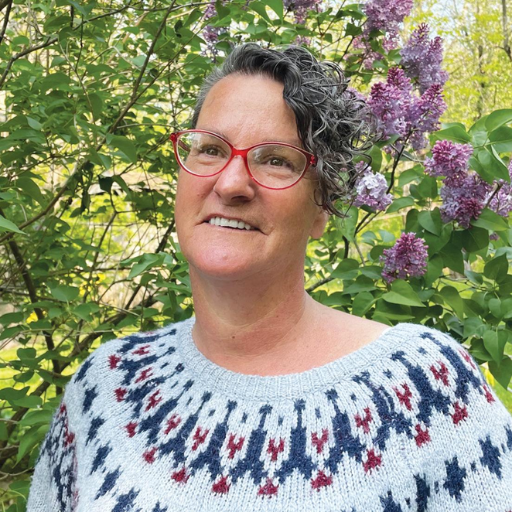Long Workdays, Many Rewards
Dawn Kearns has been in recovery for a number of years and, as is her nature, she wanted to pay it forward to others on their own journeys. That’s why Dawn is such an asset to Kennebec County as OPTIONS Liaison, working for Sweetser.
“When the OPTIONS position came available it was not just a position, it was also a position within my own community,” she said. Dawn lives in Gardiner, ME. She had personally struggled with Opioid Use Disorder there. “When I struggled with my own use, I watched it tear apart the community and friends ravaged by it. When I got my sobriety, it was important to me to fight this. In active use, I had six or eight people I used with. There are only two of us left. The opportunity to be in a position to hopefully effect some change is something that became really important.”
Dawn engages others by being visible in her communities. “I’ve begun doing pop-up tabling events in the county. I go through harm reduction supplies very quickly. Yet, I know there are many other people out there who could benefit from getting the information and supplies.
Client work is a huge part of her role. “It’s more than a full-time job,” she said. Dawn’s workday begins around 7 am, when she checks in with the Augusta Police Department to see if any related cases came in overnight. Many individuals Dawn serves are unhoused, and even though she has their name and an address, she doesn’t always know where they are.
But, she’s resourceful and tenacious. “I have several places I go every day to look for them,” she said. “I visit the LINC Center, a peer support center in Augusta, which attracts people from varying backgrounds. The center has a food pantry; classes; meetings and they allow people to shower. The homeless community congregates there.”
She then moves on to the Augusta Recovery Reentry Center to see if she can connect with the names she has just gotten and check in on the people who are on her caseload. She then returns to the Police Department for a noon briefing where the officers talk with her about people they are concerned about and instances that have happened.
Dawn works closely with Kayley Childs, who is an Intensive Case Manager at the Police Department.
“Sometimes we go out together if a call comes in,” said Dawn. She tries to visit other communities every day and visits shelters, soup kitchens and libraries to find people who may need her help. Her day generally ends around 6 pm.
“Through my job, I provide connections,” she said. “That connection could be giving you harm reduction supplies and education; or could be me sitting with your family and explaining things so everyone knows what SUD looks like; or driving you to the Emergency Room; making referrals; giving a tour of the area recovery support. It is all about connections.”
Dawn has worked to build a collaborative network of resources within the community. “I am proud of our collaborative approach with the various agencies also providing services for those who take substances or are in recovery. Through collaboration, we are able to serve a client cohesively and not yo-yo them around from one service to another. When everyone knows the person, we can seamlessly provide all the services they need. When it clicks it’s wonderful. No one person is going to save the community. We have to work together.”
Dawn’s Advice:
• Don’t give up.
• Not every approach works for every person.
• There is help and people do get to the other side.
This article was made possible with the support of the OPTIONS program and the Maine Office of Behavioral Health.



